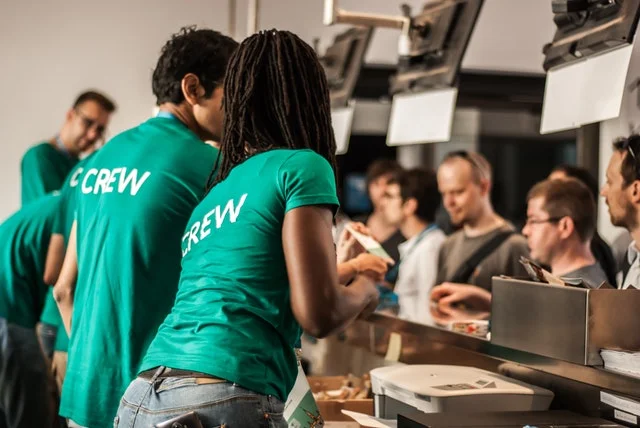How to Organise Your First Business Event

Organising a business event brings many benefits to the small business owner, but your first one is undoubtedly a challenge. Here are some key points to consider before you start, to build your own confidence and create a sound foundation for the success of the event:
1. Know Your Audience and Purpose
Determine what your target audience looks like. Nailing your audience will help with everything else from location, to event content and activities, catering, entertainment and cost.
There are many reasons why you might organise a business event, and pinpointing your unique reason is one of the keys to success. For example, it could be to launch a product, create awareness of your business, network within your industry etc. When you know why, you’ll have a much clearer picture of who you need there to help you meet your end goals.
Knowing your audience and purpose also shapes how you’ll stage the event, what type of seating, steps, and barriers you’ll need.
2. Define Your Budget
There are some costs that are non-negotiable. Health and safety is always paramount so it’s worth budgeting for professional staging equipment, for example, so you’re sure of its quality and reliability.
Having established the essentials, once you get deeper into the planning process, keep a sharp eye on estimated vs. actual costs, and be willing to scale back where necessary.
Whatever your budget is, some compromises along the way are almost inevitable, such as a smaller venue, a simpler menu, or a less well-known, but still expert, speaker.
3. Have a Financing Plan
Consider how you can make the event pay for itself, or at least offset some of the cost. Advance ticket sales can be a good indicator of likely popularity, so you should consider this as one of the first planned activities even before venue booking, and certainly before you sign any contracts.
Could you get sponsorship from other companies? Ideas include inviting catering companies to sponsor the event, working on a joint venture to save money for you both. If you manage to secure sponsorships, make sure to give your sponsors the VIP treatment.
Crowdfunding is something else to consider. Crowdfunding platforms let potential attendees pledge their interest, and if the interest generated isn’t sufficient, the event need not go ahead.
4. Online Marketing and Promotion
Use Twitter hashtags to help create a buzz, make the most of online social pre-events, hold a Google Hangout or Twitter Chat, and if you have speakers, invite them to social online promotional events.
You can also buy advertising on Facebook, Twitter or Linkedin (depending on your target audience), or use YouTube and upload previous event videos or interviews with speakers. Many people don’t realise the value of YouTube, but it’s the second biggest search engine after Google.
5. Have Contingency Plans
Contingency plans are tricky because you never know what could go wrong. It helps to make a couple of lists, with every activity in one column and everything that could go wrong in a column next to it. Things can and will happen outside the plan. Figuring out the worst-case scenario and how you could solve it, gives you a plan of action, just in case.
Thinking carefully through each of these points will give you the best possible chance of running a popular event, and achieving your business goals. And when you’ve done it once, you’ll find that people will be asking you to do it all over again!





































































































